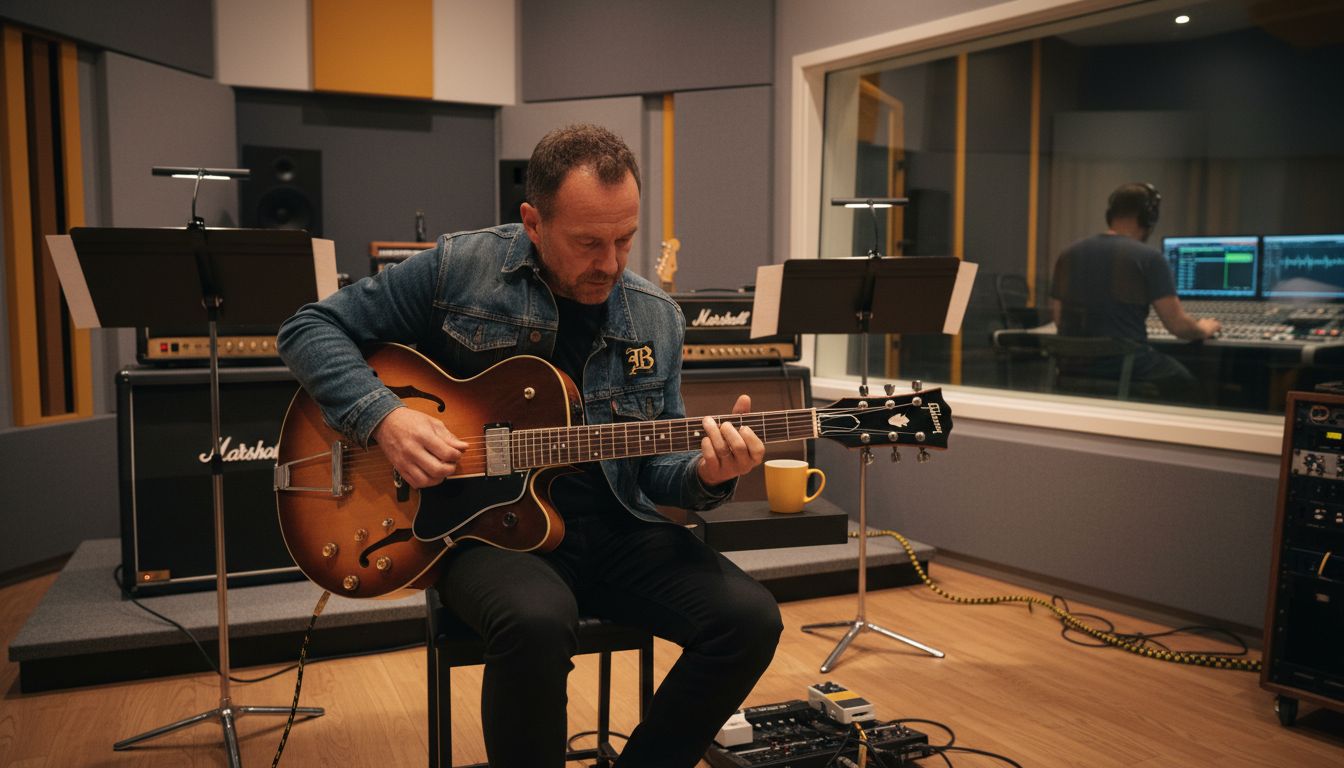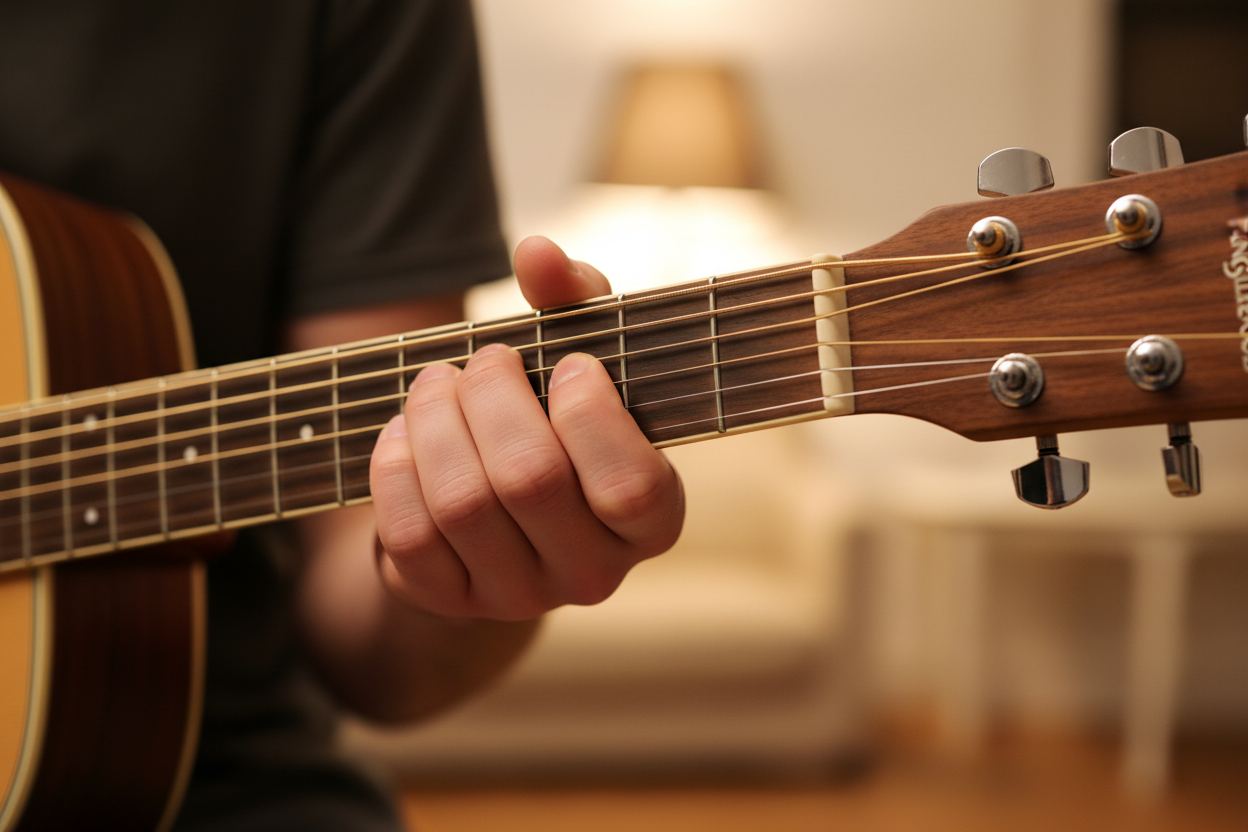From setting clear goals for each rehearsal to utilizing effective communication techniques, these tips will ensure that you use your time efficiently and effectively. We'll also explore strategies for staying focused, overcoming musical challenges, and maintaining a positive and productive atmosphere during rehearsals.
By implementing these tips, you'll not only improve your band's overall performance but also strengthen the bond between band members. So, if you're ready to take your rehearsals to the next level, read on to discover how you can make the most of your band's valuable practice time.
Finding a decent rehearsal space with good quality backline & PA already installed will save you alot of time setting up gear and problem solving cable issues which may be a problem. this will also take out the stress of loading gear into a room which you may not be familiar with.. the chances are if there's a PA in the rehearsal studio then it's been EQ'd for the room already.
Also when you turn up to the studio, try to make sure your guitars, bass are restrung and tuned in good working order, your keyboards or tech if you use any has the correct power supply etc.. nothing worse than finding that you've left something at home which you'll need!
If there's a drum kit already setup and you can just take cymbals / snare this will also save you setup time.. try not to be previous about having the kit you're going to use for live shows, it's only a rehearsal afterall.
Volcalists may want to use their own mic, just from a health point of view it's probably advisable as you don't know where it's been!
Efficient rehearsal time is crucial for any band looking to improve their performance and tighten their sound. When you have a limited amount of time to practice, it's essential to make every minute count. By maximizing your rehearsal time, you'll not only become a more cohesive and polished band, but you'll also be able to tackle more complex musical arrangements and explore new creative ideas. With these 10 essential tips, you'll be able to take your band's rehearsals to the next level.
One of the first steps in maximizing your band's rehearsal time is to create a structured schedule. Set aside specific days and times for rehearsals and stick to them as much as possible. Consistency is key when it comes to building momentum and progress as a band. By having a set schedule, you'll also ensure that all band members are available and committed to the rehearsal sessions.
When creating your rehearsal schedule, consider each band member's availability and commitments outside of the band. Find a time slot that works best for everyone and try to avoid scheduling conflicts. Additionally, make sure to allocate enough time for each rehearsal session. Depending on your band's goals and the complexity of the music you're working on, rehearsals can range from a few hours to an entire day. It's important to strike a balance between not rushing through the material and not dragging out the process unnecessarily.
Another crucial aspect of maximizing your band's rehearsal time is setting clear goals for each session. Before starting a rehearsal, take a few minutes to discuss and define what you hope to achieve during that specific practice session. This could include perfecting a particular song, working on specific sections or transitions, or focusing on improving individual technique or vocal harmonies.
Setting clear goals not only keeps the rehearsal focused and on track but also provides a sense of direction and purpose for each band member. It helps create a shared understanding of what needs to be accomplished during the rehearsal and allows everyone to contribute their ideas and suggestions. By breaking down larger goals into smaller, achievable objectives, you'll be able to make steady progress and see tangible results in each rehearsal.
Before diving into your band's repertoire, it's important to warm up both physically and vocally. Warm-up exercises help prepare your body and voice for the demands of playing and singing, reducing the risk of injury and strain. They also help improve your overall performance by increasing flexibility, control, and range.
Start your rehearsal with a series of physical warm-up exercises to loosen up your muscles and promote proper posture. This can include stretching, light cardio exercises, and even yoga or pilates. After warming up your body, move on to vocal warm-up exercises to prepare your voice for singing. This can include vocal exercises that focus on breath control, vocal range, articulation, and resonance.
While playing together as a band is important, it's equally crucial to focus on individual instrument or vocal parts during rehearsals. By dedicating time to work on specific parts, you'll be able to address technical challenges, improve timing and precision, and enhance overall musicality.
During your rehearsal, allocate time for each band member to focus on their specific instrument or vocal parts. This can involve practicing challenging sections, experimenting with different techniques, or fine-tuning specific musical elements. Encourage open communication and collaboration between band members, allowing everyone to provide constructive feedback and support each other's growth.
In today's digital age, technology can be a valuable asset when it comes to maximizing your band's rehearsal time. There are numerous tools and resources available that can help streamline the rehearsal process and enhance the overall experience.
Consider using recording devices or software to capture and review your band's performances. This allows you to objectively evaluate your sound, identify areas for improvement, and make necessary adjustments. You can also use metronomes or click tracks if you're running tracks alongside your live musicians, tuners, and other digital tools to ensure precision and accuracy in your playing.
While it's important to stay focused and productive during rehearsals, it's equally important to take breaks and maintain energy levels. Rehearsing for long periods without breaks can lead to fatigue, decreased concentration, and ultimately, a decline in the quality of your performance.
Schedule short breaks throughout your rehearsal sessions to allow band members to rest, hydrate, and recharge. This will help maintain a positive and energized atmosphere and prevent burnout. Use these breaks as an opportunity to socialize, bond as a band, and discuss any issues or ideas that may have arisen during the rehearsal.
Rehearsing can sometimes become monotonous if you stick to the same routine and techniques. To keep your band engaged and motivated, it's important to experiment with different rehearsal techniques and approaches.
Try incorporating improvisation exercises into your rehearsals to encourage creativity and spontaneity. This can help develop a stronger musical connection between band members and foster a sense of unity and trust. You can also explore different rehearsal spaces or environments to add variety and inspiration to your practice sessions.
Constructive feedback and criticism play a vital role in the growth and development of any band. During rehearsals, create a safe and supportive environment where band members can openly share their thoughts, ideas, and concerns.
Encourage each band member to provide feedback and constructive criticism to help improve the overall performance. This can include suggestions for musical arrangements, dynamics, timing, or even communication within the band. By actively incorporating feedback, you'll foster a culture of continuous improvement and ensure that everyone's voice is heard.
Effective rehearsal time is crucial for any band looking to maximize their potential and achieve their musical goals. By implementing these tips, you'll be able to make the most of your band's valuable practice time and elevate your performances to new heights.
From creating a structured rehearsal schedule to setting clear goals and utilizing technology, each tip is designed to enhance efficiency, focus, and collaboration within your band. By prioritizing individual parts, taking breaks, experimenting with different techniques, and incorporating feedback, you'll not only improve your band's overall performance but also strengthen the bond between band members.
So, if you're ready to take your rehearsals to the next level, start implementing these tips today and watch your band soar to new heights of musical excellence.




Share:
From Good to Great: Transforming Your Sound with These Essential Effects Pedals for a Function Band
The Magic of Lowden Guitars: A Look at the Famous Guitarists Who Swear by Them